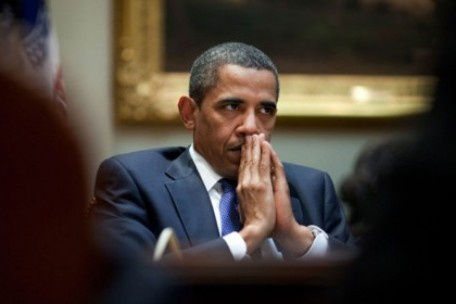Obama’s Request to Return the Drone a Mockery of the International Law

IRD: How is the American drone entering Iran defined under international law?
DA: The UN defined assault-- and its causes and qualities-- in Resolution 1974 approved in the General Assembly, stating that when the forces of a country pass the territorial boundaries of another country and launch movements, it is considered as an evident assault. In fact, the use of military forces is an evidence of assault. However, several objections were raised that psychological pressures, economic threats or imposed sanctions could be assaults too, but in that period, it was announced that anytime the military forces of a state physically pass the territorial boundaries of another country and enter that state, it is defined as an assault. In the status quo, the US government sent its drone well into Iranian territorial boundaries, a measure that is an evident air assault.
IRD: How can Iran react based on international law?
DA: This can be answered with reference to two articles of the UN charter that stipulates its principles. First, respect for the sovereignty of states: under any circumstances, the states’ sovereignty should not be repealed, while the main principle is to maintain equality in sovereignty and all states are required to respect other states’ sovereignty. Second, states should not be threaten the territorial integrity and political independence of each other through exerting force and making threats, a measure that may lead to endangering international peace, security and justice.
In fact, the dispatch of this spy drone past Iranian borders is an example of violating respect for Iranian sovereignty, territorial integrity and political independence, and evidence of an assault. The main reference to address this issue is the Security Council in the first place, and Iran has taken some measures in this regard. The UN Security Council is required to maintain international peace and security and to propose solutions whenever it feels there is a measure taken threatening peace, which is considered as assault.
According to Article 44 of the Charter, assault can be responded to with economic, diplomatic or political boycotts imposed by the UN. If those are not effective and the Security Council recognizes that other measures should be taken, it may use force according to the Article 42 of the UN charter.
IRD: Can Iran refer this to the International Court of Justice?
DA: The court is the authority to deal with legal disputes between states, not with assault cases and the like. However it is optimal that the Security Council resolves the problem diplomatically, but if it fails to carry out its task or is not inclined to resolve it legally, the Islamic Republic of Iran is entitled to bring a complaint to the court, while only the legal aspect of the issue can be dealt with in the court.
It is noteworthy to heed the issue’s dual aspects: political and legal. The International Court of Justice can only deal with the legal aspect, however the issue is complicated. In the end it should be concluded with both sides’ assent. Without the dissent or acceptance of the competence of the court by both sides, the court cannot be referred to.
IRD: How can the issue of returning the drone, proposed by the US, be justified legally?
DA: This claim by the Americans does not have any legal basis-- the allegation is wrong and violates all conventions of international law. The Americans have clearly announced that they assaulted and violated international criteria, and are now requesting that Iran return the drone. This is a mockery of international law. In fact, the claimant here is Iran, and the downed drone is “war booty” whose return to the US can be followed under international law.

